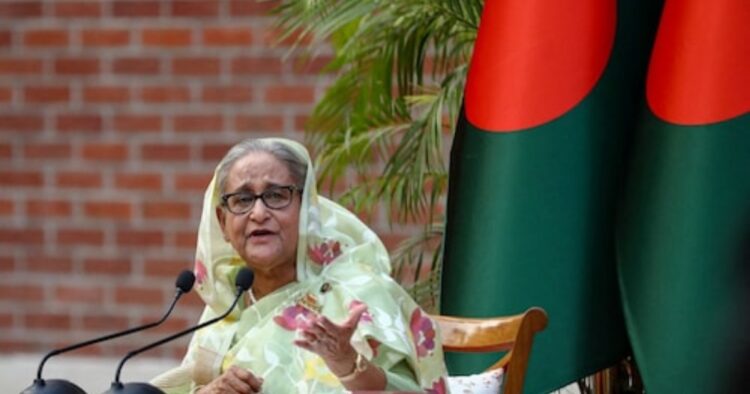In a dramatic and unprecedented turn of events, Bangladesh’s Prime Minister Sheikh Hasina has resigned and fled the country, landing at the Hindon Indian Air Force base near Delhi. This development comes in the wake of escalating protests and violent clashes that have shaken the nation and cast a shadow over the future stability of Bangladesh.
Crisis Unfolds: From Protests to Resignation
The unrest in Bangladesh began with student protests against a government-imposed job reservation system that allocated 30 percent of government jobs to the descendants of freedom fighters from the 1971 independence war.
What started as a demand for fair job quotas rapidly evolved into broader calls for Prime Minister Hasina’s resignation. The protests turned violent, leading to significant casualties, including 14 police officers, and causing widespread chaos in Dhaka.
The 2009 Precedent: A Historical Echo
The current crisis bears striking similarities to a 2009 incident when the now-disbanded Bangladesh Rifles (BDR) staged a deadly mutiny against the government. During that time, Hasina faced a severe threat to her leadership, and India prepared for potential intervention to support her. The situation was defused without direct military action, but the close ties between India and Bangladesh were evident.
This historical context adds weight to the current crisis and highlights the strategic importance of Hasina’s leadership to regional stability.
In a significant development, Prime Minister Sheikh Hasina has resigned and fled Bangladesh amid the intensifying crisis. She landed at the Hindon Indian Air Force base near Delhi, marking a dramatic turn in the unfolding events. This move follows a series of violent protests that saw demonstrators storming her residence in Dhaka. The interim government in Bangladesh, now led by Army Chief General Waker-Uz-Zaman, has taken control and is tasked with managing the country during this turbulent period.
India’s Role and Strategic Response
India has played a pivotal role in the unfolding crisis. Following Hasina’s request for assistance, India provided safe passage for her aircraft through its airspace. The mobilization of Indian paratroopers in 2009 and the current facilitation of Hasina’s escape underscore the strategic and diplomatic significance of the relationship between India and Bangladesh.
India’s involvement highlights its interest in maintaining stability in the region and supporting its neighboring ally during times of crisis.
Political and Social Implications
Hasina’s resignation and departure have profound implications for Bangladesh’s political landscape. The protests, fueled by accusations of corruption and abuse of power, have exposed deep-seated issues within the government.
The interim government led by General Waker-Uz-Zaman now faces the challenge of restoring order and addressing the grievances of the protesters. The future of Bangladesh’s leadership and political stability remains uncertain as the country navigates this critical period.
ALSO READ: “Former Indian Envoy to Bangladesh Suggests Foreign Influence Behind Protests”
The international community is closely monitoring the situation in Bangladesh, with concerns about the potential for regional instability. Major global players, including the United States, Britain, Japan, and China, have been involved in diplomatic efforts to support Hasina and address the crisis. The involvement of these international actors underscores the global interest in ensuring stability in Bangladesh and highlights the broader implications of the crisis for regional security.
The events leading to Prime Minister Sheikh Hasina’s resignation and flight to India mark a significant moment in Bangladesh’s history. As the country grapples with the aftermath of the protests and the uncertainty of a new interim government, the role of international actors, particularly India, will be crucial in shaping the future direction of Bangladesh. The situation remains fluid, and the coming days will be critical in determining the path forward for the nation and its people.

















Comments